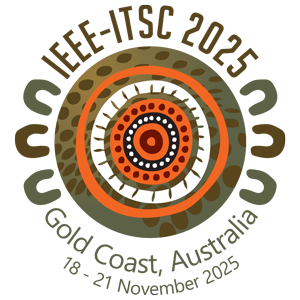Workshop on Foundation Models for
V2X-Based Cooperative Autonomous Driving
| 08:00 - 08:10 | Introduction |
| 08:10 - 08:30 | Research Highlights — Dr. Walter Zimmer (TUM) |
| 08:30 - 08:50 | Keynote Presentation 1 — Prof. Dr. Jiaqi Ma (UCLA) |
| 08:50 - 09:10 | Keynote Presentation 2 — Dr. Xiao Wang (Anhui University) |
| 09:10 - 09:30 |
Keynote Presentation 3 — Prof. Dr. Bassam Alrifaee (UniBW Munich)
Infrastructure-Assisted Perception and Foundation Models in Cooperative Autonomous Driving.
|
| 09:30 - 09:50 | Keynote Presentation 4 — Prof. Dr. Manabu Tsukada (Tokyo Uni.) |
| 10:00 - 10:30 | Morning Refreshment & Coffee Break |
| 10:30 - 10:50 |
Keynote Presentation 5 (remote) — Prof. Dr. Aleksandr Petiushko (Sofia University)
Safe Planning in Autonomous Driving
|
| 10:50 - 11:10 |
Keynote Presentation 6 — Dr. Elnaz Irannezhad (UNSW Sydney)
Intelligent Ports of the Future: Generative AI-Driven Decision-Making in Logistics
|
| 11:10 - 11:30 |
Keynote Presentation 7 — Prof. Jonathan Sprinkle (Vanderbilt Uni.)
Vehicle to Infrastructure Communication and Lagrangian Variable Speed Controllers
|
| 11:30 - 11:50 |
Keynote Presentation 8 — Prof. Dr. Ziran Wang (Purdue Uni.)
ViLaD: Large Vision-Language Diffusion Models for End-to-End Autonomous Driving
|
| 11:50 - 12:30 | Panel Discussion I |
| 12:30 - 13:30 | Lunch |
| 13:30 - 13:50 |
Keynote Presentation 9 — Prof. Dr. Cathy Wu (MIT)
Empowering Smart Mobility with Computational Social Intelligence
|
| 13:50 - 14:10 |
Keynote Presentation 10 — Dr. Mao Shan (Uni. of Sydney)
Foundational Models for Animal Detection on Roads
|
| 14:10 - 14:30 |
Keynote Presentation 11 — Linda Lim (UC Berkeley)
From Corridors to Networks: Data-Driven Traffic Modeling for Connected and Automated Vehicles
|
| 14:30 - 15:00 | Panel Discussion II |
| 15:00 - 15:10 |
Paper Pitch 1 — Zhenxing Ming (University of Sydney)
OccCylindrical: Multi-Modal Fusion with Cylindrical Representation for 3D Semantic Occupancy Prediction
|
| 15:10 - 15:20 |
Paper Pitch 2 — Roy Parthib (UC Merced)
DoScenes: An Autonomous Driving Dataset with Natural Language Instruction
|
| 15:20 - 15:30 |
Paper Pitch 3 — Michael Kösel (Uni Ulm)
ALOOD: LiDAR-Based Out-Of-Distribution Object Detection
|
| 15:30 - 16:00 | Afternoon Refreshments & Coffee Break |
| 16:00 - 16:10 |
Paper Pitch 4 — Mateus Karvat (Queen's University)
Adver-City: Multi-Modal Dataset under Adverse Weather
|
| 16:10 - 16:20 |
Paper Pitch 5 — William Barbour (Vanderbilt Uni.)
Persistent Monitoring and Analysis at a Corridor Scale
|
| 16:20 - 16:30 |
Paper Pitch 6 — Felix Neumann (Siemens)
LiDAR Ground Segmentation with Gaussian Mixture Models
|
| 16:30 - 16:40 |
Paper Pitch 7 — Zhichao Liu (Southeast University)
AlignOcc: LiDAR-Camera Fusion for 3D Occupancy Prediction
|
| 16:40 - 16:50 |
Paper Pitch 8 — Jörg Gamerdinger (Uni Tuebingen)
SnowyLane: Lane Detection on Snow-Covered Rural Roads
|
| 16:50 - 17:00 |
Paper Pitch 9 — Tzu-Yun Tseng (University of Sydney)
Panoptic-CUDAL: Rural Australia Point Cloud Dataset
|
| 17:00 - 17:10 | Award Ceremony — Dr. Walter Zimmer (TUM) |
| 17:10 - 17:20 | Closing & Final Remarks — Dr. Walter Zimmer (TUM) |
| 17:20 - 17:30 | Group Picture — All organizers & speakers |
